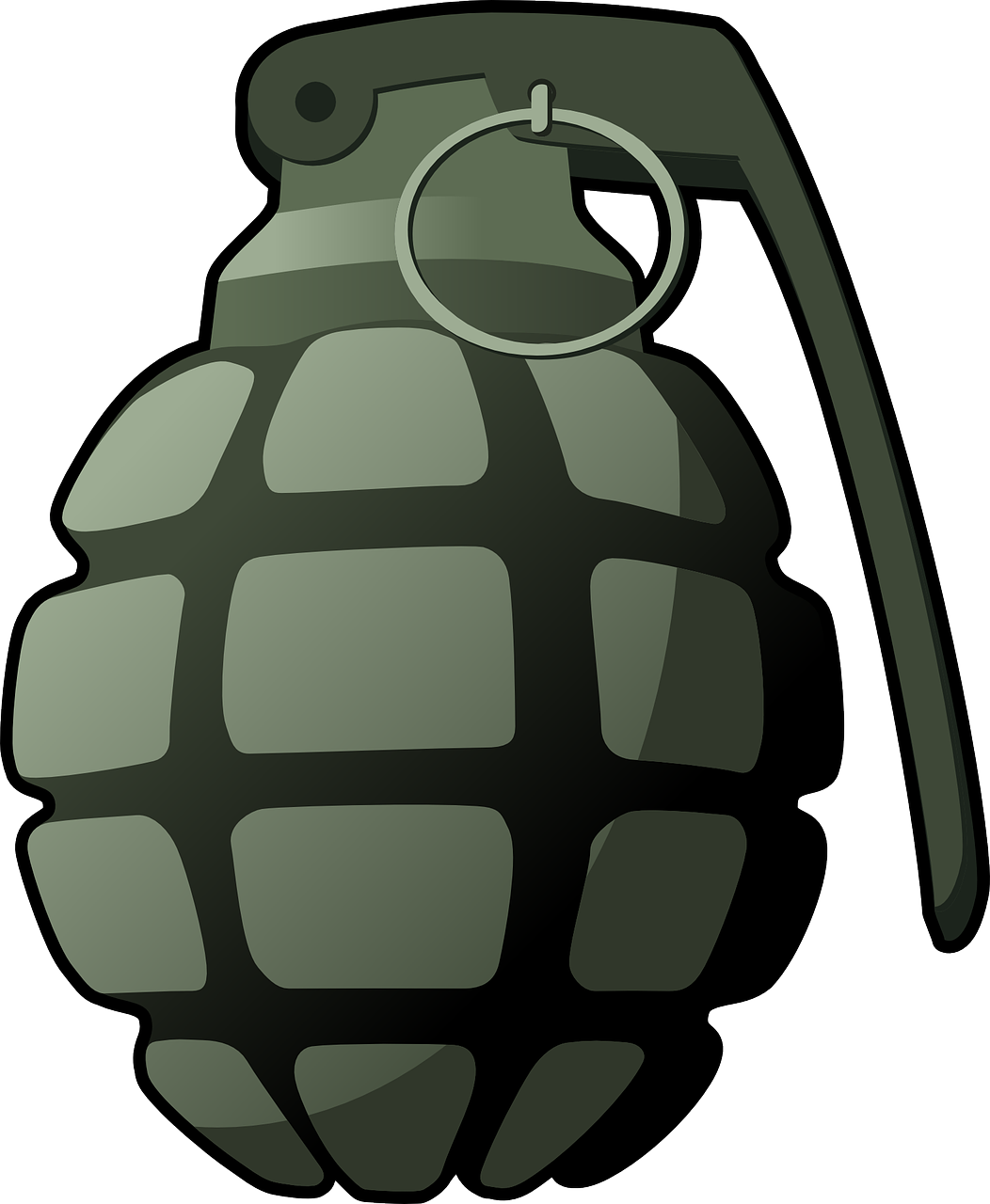In today’s complex legal landscape, individuals who find themselves facing criminal charges often feel overwhelmed and uncertain about their rights and options. As a criminal defense attorney, your mission is to provide them with the guidance and support they need during this challenging time. By offering comprehensive legal aid, you can navigate the intricacies of the legal system, protect their rights, and strive for the best possible outcome. Through this article, we aim to demystify the criminal defense process, address common legal concerns, and emphasize the importance of seeking professional assistance promptly. By understanding the needs and concerns of individuals facing criminal charges, we can provide informative and accessible content that instills confidence and sets our firm apart.

Understanding Criminal Defense Legal Aid
Criminal defense legal aid is a vital resource that provides individuals facing criminal charges with the necessary legal representation and support. This article aims to provide a comprehensive understanding of criminal defense legal aid, its importance, how it works, the different types available, and the benefits and limitations associated with it. Additionally, we will explore how individuals can access and find criminal defense legal aid services, and include personal testimonials and frequently asked questions to further address common concerns.
Importance of Legal Aid in Criminal Defense Cases
Legal aid plays a crucial role in criminal defense cases, ensuring that individuals who may not have the means to afford a private attorney still have access to quality legal representation. This is essential to uphold the principles of justice and ensure a fair trial for all individuals, regardless of their financial circumstances. Without legal aid, marginalized and vulnerable individuals facing criminal charges may be at a significant disadvantage in navigating the intricacies of the legal system.
Who Qualifies for Criminal Defense Legal Aid
In order to qualify for criminal defense legal aid, certain eligibility criteria must be met. These criteria typically take into account the individual’s income, assets, and the nature of the charges they are facing. The specific requirements may vary depending on the jurisdiction, but generally, legal aid is primarily available to low-income individuals who cannot afford to hire a private attorney. It is important to consult with local legal aid organizations or state bar associations to determine the qualifications and guidelines for receiving criminal defense legal aid.
How Criminal Defense Legal Aid Works
Criminal defense legal aid operates through a systematic process that allows eligible individuals to access legal representation. Understanding the steps involved and the role of legal aid lawyers is key to grasping how this invaluable service works.
Steps to Access Criminal Defense Legal Aid
-
Application: Individuals seeking criminal defense legal aid must complete an application form provided by the respective legal aid organization. This form typically requests information about their financial situation, charges faced, and personal background.
-
Financial Eligibility Assessment: Once the application is submitted, a financial eligibility assessment is conducted to determine if the applicant meets the income and asset thresholds required to qualify for legal aid. This assessment ensures that resources are allocated to those who genuinely require assistance.
-
Legal Representation Assignment: If the individual meets the eligibility criteria, they will be assigned a legal aid lawyer to represent them in their criminal defense case. The lawyer will be experienced in criminal law and have an understanding of the local legal system.
-
Case Preparation and Defense: The assigned legal aid lawyer will work closely with the client to gather relevant information, investigate the circumstances surrounding the charges, and build a strong defense strategy. They will provide legal advice, represent the client in court, and negotiate with prosecutors if necessary.
Role of Legal Aid Lawyers in Criminal Defense Cases
Legal aid lawyers play a significant role in criminal defense cases. They possess the expertise and experience necessary to ensure their clients receive a fair trial and are protected under the law. Some common responsibilities of legal aid lawyers in criminal defense cases include:
-
Client Consultation: Legal aid lawyers provide an initial consultation where they listen to the client’s side of the story, assess the situation, and provide guidance on the legal process ahead.
-
Legal Advice and Guidance: Throughout the legal proceedings, legal aid lawyers inform their clients about their legal rights, explain the potential consequences of different actions, and advise them on the best course of action.
-
Case Investigation and Preparation: Legal aid lawyers conduct thorough investigations to gather evidence, interview witnesses, analyze police reports, and build a strong defense strategy. They ensure that all relevant information is presented to the court.
-
Representation in Court: Legal aid lawyers represent their clients during court proceedings, including arraignments, bail hearings, trial, and sentencing hearings. They advocate for their clients’ best interests and challenge the prosecution’s evidence when appropriate.
-
Negotiations and Plea Bargains: Legal aid lawyers negotiate with prosecutors on behalf of their clients, exploring the possibilities of reduced charges or alternative resolutions through plea bargains. They ensure their clients understand the implications of any proposed deals and make informed decisions.
Types of Criminal Defense Legal Aid
In order to cater to the diverse needs of individuals facing criminal charges, various types of criminal defense legal aid programs exist. Understanding these options is essential for individuals seeking legal representation.
Public Defender Programs
Public defender programs are government-funded initiatives that provide legal representation to individuals who cannot afford a private attorney. Public defenders are licensed attorneys who work within the criminal justice system and are appointed by the court. They are often well-versed in criminal law and have a solid understanding of local court procedures. Public defender services are typically free or offered at a significantly reduced cost.
Assigned Counsel
Assigned counsel refers to a system whereby private attorneys are appointed by the court to represent eligible individuals in criminal defense cases. These private attorneys are compensated by the government for their services. Assigned counsel programs offer individuals more options and flexibility in choosing their attorney, as they can select from a pool of qualified lawyers who have agreed to participate in the program.
Pro Bono Legal Services
Pro bono legal services refer to legal representation provided by private attorneys who volunteer their time and expertise to assist individuals in need. Pro bono attorneys take on cases without charging their clients, ensuring that those who cannot afford legal fees still have access to competent legal representation. Pro bono services often operate through partnerships between legal aid organizations and law firms.
Benefits of Criminal Defense Legal Aid
Criminal defense legal aid offers numerous benefits to individuals facing criminal charges, ensuring that justice is upheld and constitutional rights are protected.
Access to Legal Representation
One of the primary benefits of criminal defense legal aid is that it provides individuals who cannot afford a private attorney with access to skilled legal representation. This ensures that they have a competent legal professional to guide them through the complexities of the legal system and present their defense effectively.
Cost Savings
Legal fees can be a significant barrier for individuals facing criminal charges, particularly those with limited financial resources. Criminal defense legal aid offers cost savings by either providing free legal services or significantly reducing legal fees. This allows individuals to receive the professional legal assistance they need without incurring exorbitant costs.
Expertise and Experience
Legal aid lawyers specializing in criminal defense possess the necessary expertise and experience to handle a wide range of criminal charges. They are well-versed in the intricacies of criminal law and have a deep understanding of local court systems. Their knowledge ensures that individuals receive competent and effective legal representation.

Challenges and Limitations of Criminal Defense Legal Aid
While criminal defense legal aid is a crucial resource, it faces certain challenges and limitations that can impact its effectiveness.
Limited Resources
Legal aid organizations often face limited funding and resources, making it challenging to meet the demand for legal services. This can result in delays in accessing legal aid or limited availability of legal aid lawyers. As a result, individuals may not receive immediate assistance or may face extended waiting times before their case is assigned to a legal aid lawyer.
Eligibility Restrictions
Criminal defense legal aid is typically reserved for individuals who meet specific eligibility criteria, including income thresholds. This means that some individuals who may not meet these criteria but still face financial strain may not qualify for legal aid. Moreover, individuals who are above the income threshold but still struggle to afford a private attorney may find it difficult to access legal representation through legal aid programs.
How to Find Criminal Defense Legal Aid
Finding criminal defense legal aid requires individuals to explore available resources and organizations that offer these services.
Local Legal Aid Organizations
Local legal aid organizations provide invaluable assistance in connecting individuals with criminal defense legal aid services. They often maintain databases of legal aid lawyers and offer guidance regarding eligibility and application processes. Research local legal aid organizations in your area to identify the options available.
State Bar Associations
State bar associations can be a helpful resource in finding criminal defense legal aid. They provide information and support in locating legal aid services specific to the state. State bar associations often have directories or referral services that can assist individuals in connecting with legal aid lawyers.
Online Legal Aid Resources
Numerous online legal aid resources exist, offering comprehensive information and directories of legal aid organizations and lawyers. These platforms provide easy access to relevant resources and contact information for legal aid programs. Search online for reputable websites that provide up-to-date and accurate information on criminal defense legal aid in your jurisdiction.
Client Testimonials: Personal Stories of Criminal Defense Legal Aid
Testimonial 1: “I was facing serious criminal charges and had no idea how I could afford legal representation. Thankfully, I found out about the criminal defense legal aid program in my area. The legal aid lawyer assigned to my case was professional, knowledgeable, and compassionate. They fought for my rights and ensured I received a fair trial. I am forever grateful to the legal aid program for providing me with the assistance I needed during a difficult time.”
Testimonial 2: “As a small business owner, I never anticipated being involved in a criminal case. When I found myself facing charges, I was overwhelmed and worried about the financial burden of hiring a private attorney. The criminal defense legal aid program played a crucial role in my defense. The legal aid lawyer assigned to my case guided me through the legal process and fought tirelessly to protect my reputation and livelihood. I couldn’t have navigated the complicated legal system without their support.”
FAQs about Criminal Defense Legal Aid
What is criminal defense legal aid?
Criminal defense legal aid refers to the provision of legal representation and support to individuals who are facing criminal charges but cannot afford to hire a private attorney. It ensures that individuals have access to quality legal assistance, regardless of their financial circumstances.
How do I know if I qualify for criminal defense legal aid?
Eligibility for criminal defense legal aid is typically based on income and assets. Each jurisdiction may have specific guidelines and thresholds. To determine if you qualify, it is best to consult with local legal aid organizations or state bar associations that can provide accurate information and guidance.
Are public defenders as effective as private attorneys?
Public defenders are licensed attorneys who are well-equipped to provide competent legal representation. While the workload of public defenders can be demanding, they often possess extensive experience in criminal law and have a deep understanding of local court systems. Public defenders can provide effective representation, but it is crucial to have open and honest communication with your attorney to ensure your defense is tailored to your specific circumstances.
Can I switch from a public defender to a private attorney?
In certain situations, individuals who initially qualify for a public defender may choose to switch to a private attorney. However, this decision may be subject to court approval and is often based on various factors, including the availability of private attorneys and the stage of the criminal proceedings. It is important to consult with legal professionals and explore the specific guidelines in your jurisdiction.
What if there are no legal aid options available in my area?
If there are no legal aid options available in your area, it is important to seek alternative sources of legal assistance. Some organizations offer reduced-cost or sliding-scale fee arrangements, while others may provide referrals to attorneys who handle cases pro bono or offer payment plans. It is advisable to approach local bar associations or consult with legal professionals to explore these alternatives.

Conclusion
Criminal defense legal aid is a crucial resource that ensures individuals facing criminal charges receive the legal representation and support they need. This article provided a comprehensive understanding of criminal defense legal aid, highlighting its importance, how it works, and the various types available. We explored the benefits and limitations of criminal defense legal aid and provided guidance on accessing and finding legal aid services. Through personal testimonials and frequently asked questions, we aimed to address common concerns and provide assurance to individuals seeking legal assistance in criminal defense cases. If you are facing criminal charges and require legal representation, we encourage you to contact our experienced criminal defense attorney for a consultation. Take the first step in protecting your rights and securing a fair trial by calling [Lawyer’s phone number] today.











































